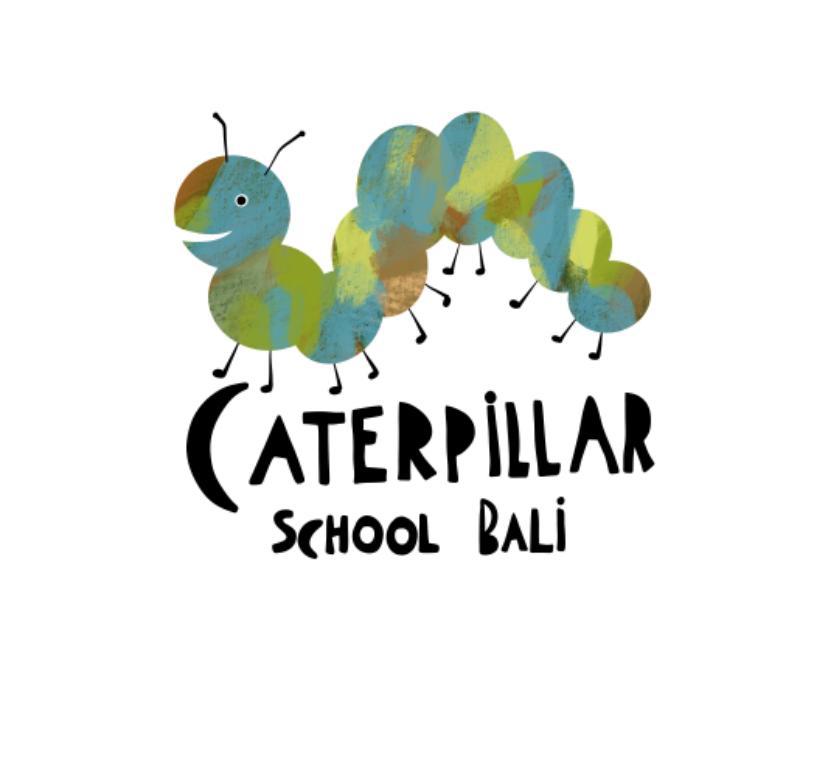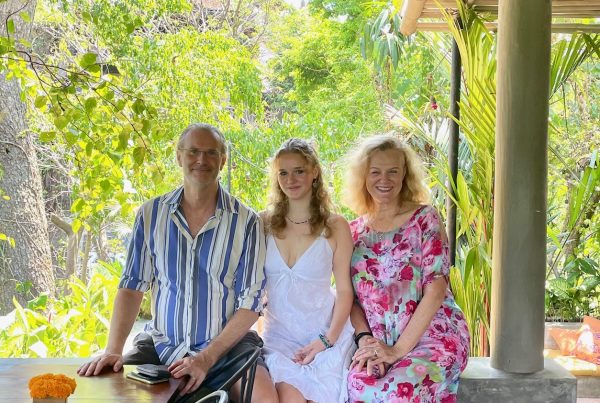Welcome to this special interview with Conny Hahnkamm, the visionary mind behind Caterpillar Learning Centre. In our discussion today, we will unravel the wonderful story of how Caterpillar Learning Centre came to be and take a closer look at its distinctive approach to early childhood education. Additionally, we will delve into the school’s unique philosophy, blending of curriculum, and the enriching experiences it provides for young learners. Nestled in the sought-after Umalas, perfectly positioned between Canggu and Seminyak, Caterpillar Learning Centre benefits from a vibrant community and a prime location. Enjoy reading about the unique aspects that define Caterpillar Learning Centre.
Can you tell us a bit about yourself and share the story about how Caterpillar Learning Centre came to life?
Caterpillar all began with 4 children in my living room. My Son Fox was at a Kindergarten and I was always an active participant in his education. When Covid hit and it became clear that all of the learning would be online I made the swift decision to take his learning into my own hands and put my own work on hold. With a great community around me and lots of friends in similar situations it wasn’t long before I was setting up a home school, converting my office space into a classroom and hiring my first Caterpillar teacher. It was a challenge for Fox having to share all of his toys but also a great learning experience for all of the children, providing them with the social skills that the pandemic had deprived them of. We soon realised the pandemic was lasting for longer than we had first anticipated and word spread about our home school. With another influx of students we outgrew our family home and started the search for a new location. I only want the best for the children and so searched high and low for the perfect learning space, and finally we found our current villa. A tranquil oasis in the heart of Bali. It is such a beautiful space, the fruit trees, the flowers, the grass and only the sound of the birds. A perfect learning space for both children and teachers. We had 18 month year olds that had never walked on grass before and 2 year olds that had never met another child their age. The smiles on the children’s faces moving to this villa is something I will never forget.
Your school places a strong emphasis on nature-based activities and outdoor play. How do you believe this philosophy benefits children’s education and development?
The benefits of nature-based learning are invaluable to both children and adults. Firstly the environment is incredibly calming for the teachers with research proving that walking barefoot outside can reduce stress by 62%. It is also incredibly important, for children run, and have the space to explore. Nature brings about leaning opportunities, providing a space for children to ask questions about the world around them. But most importantly it is grounding, bringing children a sense of calm in amongst our busy lives.
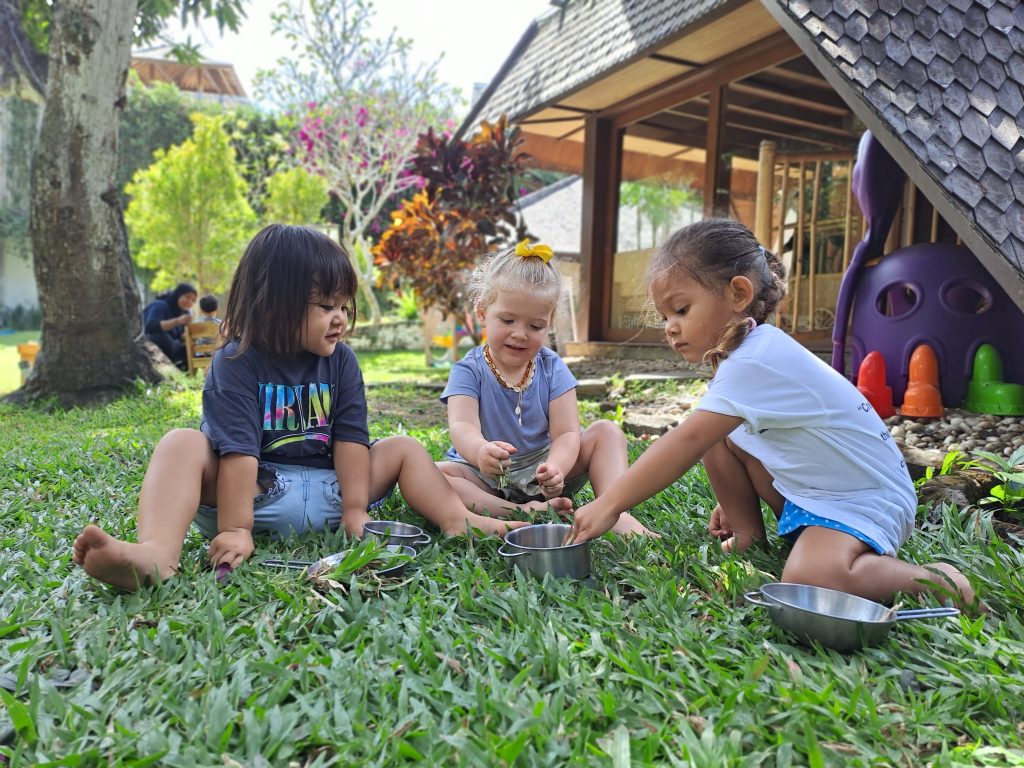 .
.
The school adopts both the Finnish Early Childhood Education Curriculum and the British Curriculum. Could you provide insight into how these curricula are seamlessly integrated into your programs to foster children’s curiosity and environmental awareness?
The Finnish and British Curriculum are rather contrasting, with the British having more of an academic focus and the Finnish being more holistic by teaching the children life skills. Blending them together allows us to create a perfect balance between helping children manage their emotions,
support the learning of well rounded, little people. We chose the Finish Curriculum because of its focus on nature, culture and languages. At caterpillar we see the importance of not only supporting children academically but also supporting them with valuable life skills.
The Finish education is also one of the best in the world and we want our children to succeed. Through building strong foundations with strong social emotional skills and understanding of empathy and compassion we really believe this curriculum can encourage children to be wonderful global citizens.
That being said it is also important to support children academically too. Learning to read and write and understand number is imperative to children’s success later in life at caterpillar we also support this using the British Curriculum.
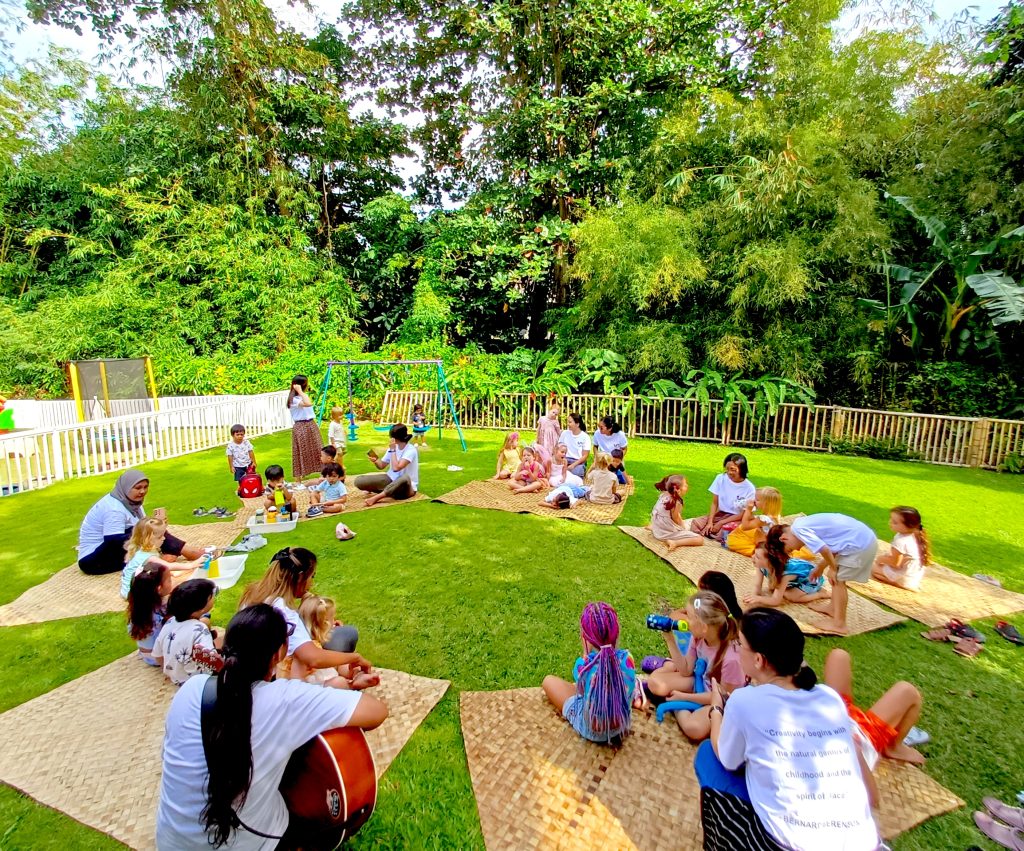
Your student centred approach prioritizes the unique individuality of each child. Can you explain how this approach is implemented to your mission to nurture self-regulation, self-direction and self- reflection in children?
Small child to teacher ratios make a huge difference in a child’s education. With our student centered approach, we are able to support children’s learning in a way that words for them. Each child learns differently and has different strengths and things that they find difficult. By tailoring learning to each child and teaching them the skills they need to regulate their emotions, find their own interests and reflect on their learning we can really help them to succeed.
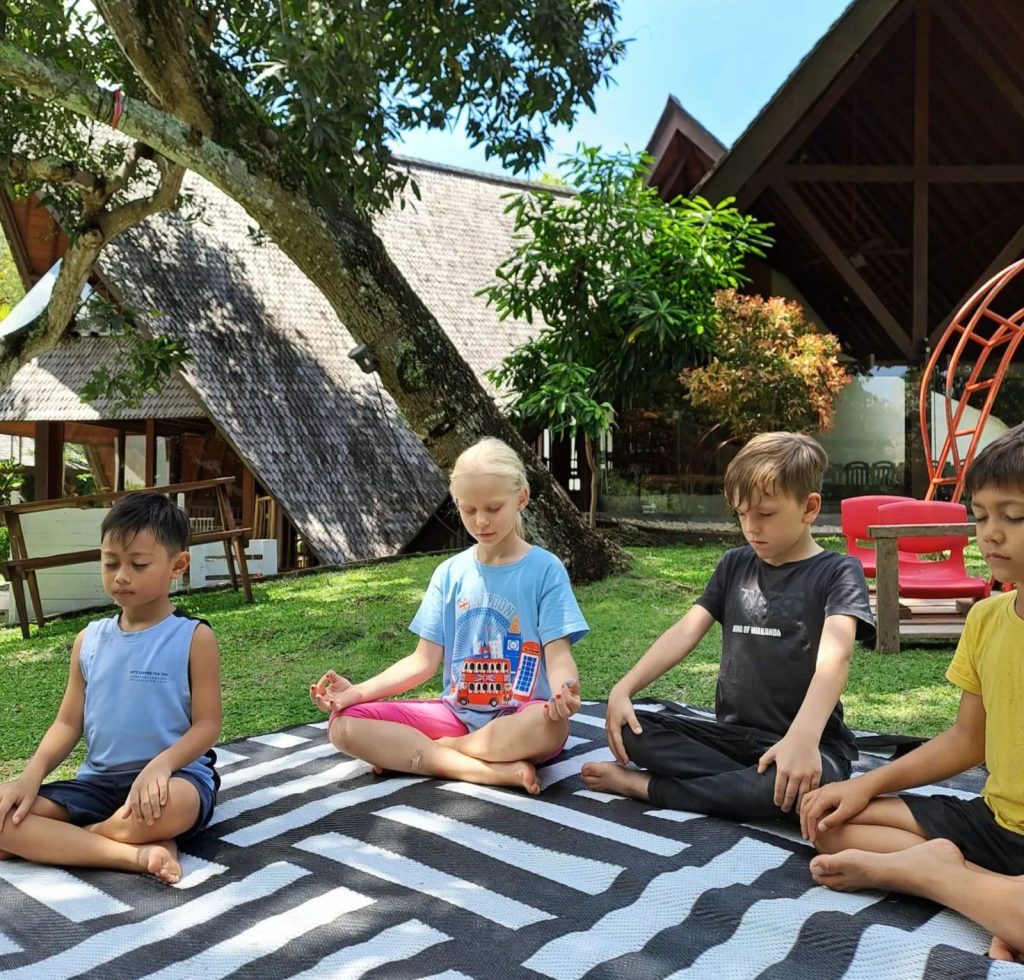
Tell us more about your team of educators. What qualifications, expertise and experience do they bring to the Caterpillar Learning Centre?
At Caterpillar we take pride in all of our home-room teachers having either a Bachelors or a Masters degree in Primary Education and experience ranging from 8-14 years. This wealth of teaching experience creates a really strong, enthusiastic and create team. A team that work together to make every day at Caterpillar, fun and exciting.
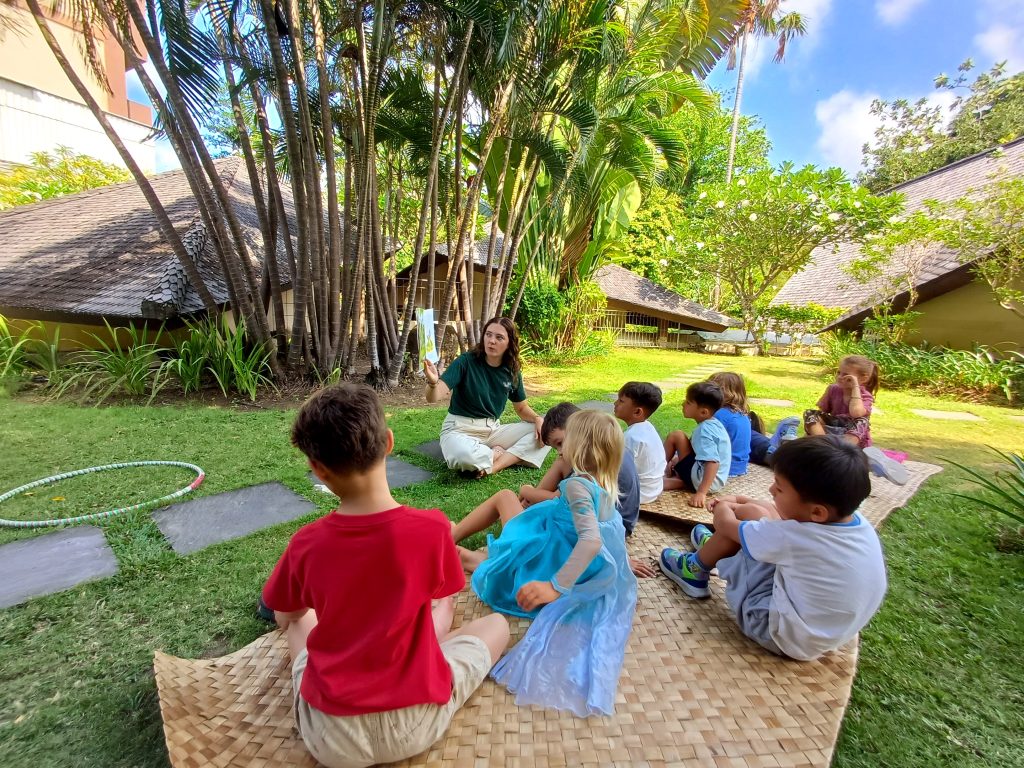
What is the typical profile of families enrolling their children in the school? What age groups do you accommodate and what are the typical class sizes?
We have 15 different nationalities, and children ranging from 15 months to 8 years old. With small class sizes of 10-15 children Caterpillar school is an environment where every individual is respected and appreciated.

Could you provide an overview of the after-school activities and programmes that you offer to students as part of their holistic education?
Our after school activities include German, English, Bahasa, Guitar class, cooking class, arts and crafts, music and movement, little scientists and more. Providing the children with further enrichment in their learning.
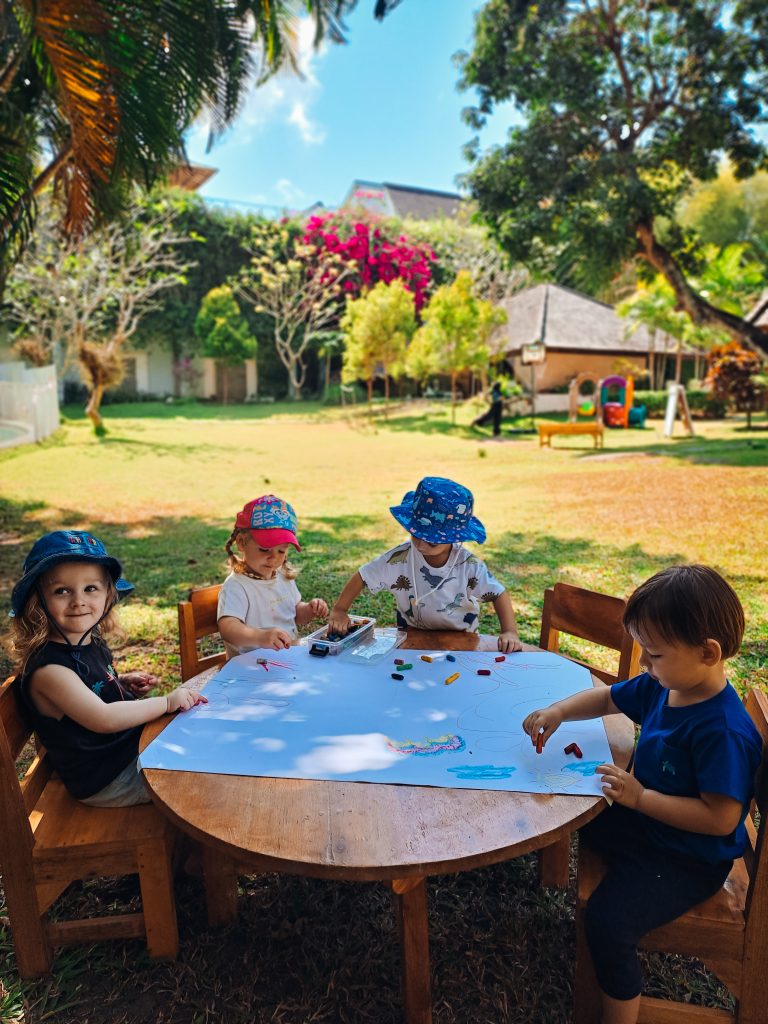
Could you elaborate on the importance of fostering collaboration between parents and the school for a child’s academic success and how do you encourage active parent involvement?
At Caterpillar we se great importance in forming strong bonds with the parents and creating a community that supports each child’s development and success. We do this through a range of methods, such as daily updates from the home room teacher about the child’s day and frequent see saw updates, showing the parents photos of what the children are getting up to. We also host a range of event such as parents tea, information evenings and social events for all the family such as open house. The building of such a community creates a safe environment for each child to learn and grow both in school and at home.
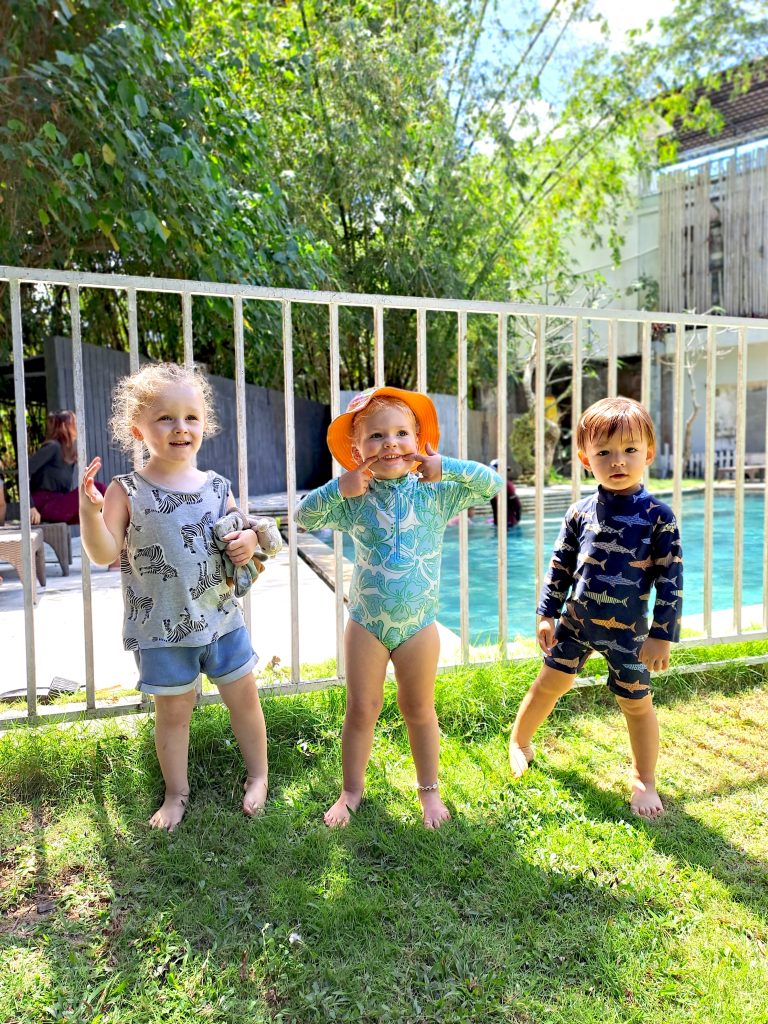
The Caterpillar learning Centre is deeply connected to the cultural heritage of Bali. Can you share specific examples of how this culture is integrated into the school’s operation?
At Caterpillar school we get involve in lots Cultural Celebrations and Festivals such as araswati dayand Galungan day, Nyepi day, showcasing traditional dances, music (rindik / bamboo instrument, providing students with the opportunity to learn and appreciate the performing arts of Bali.
We Integrate Balinese arts and crafts into the curriculum, allowing students to create traditional artwork or engage in activities like batik painting or creating traditional offerings (canang sari).
We also have Traditional Clothing Days, where students and staff wear traditional Balinese clothing, fostering a sense of cultural pride and unity
The significance of integrating Balinese culture into the school’s operations lies in preserving and celebrating the unique cultural identity of Bali. Through providing Balinese language and culture class the children develop a strong connection to their local community, fosters cultural pride, and promotes a deeper understanding and respect for the rich heritage of the island. Additionally, it contributes to a holistic and well-rounded education, nurturing students not only academically but also culturally and socially.
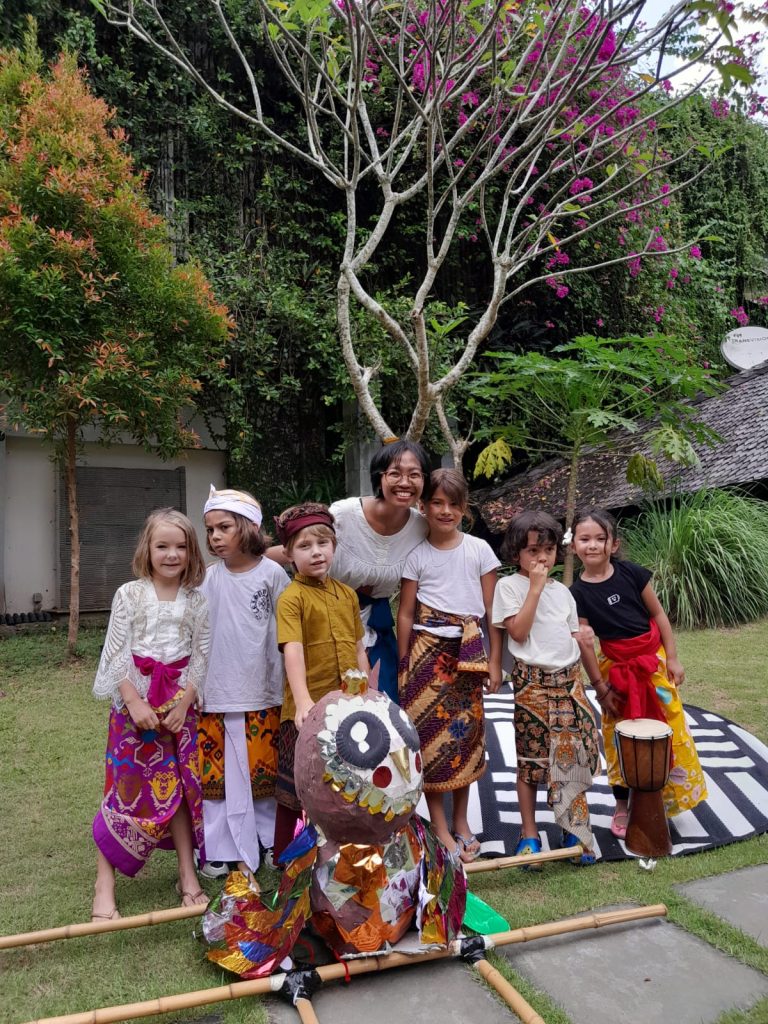 .
.
Is there anything else you would like to share with us about your Learning Centre?
We provide an environmentally friendly environment, for children to learn and play. From nature-based lessons, and environmental education, planting activities and lessons based upon reusing and recycling. As part of the Caterpillar Curriculum we want to educate and empower our students to make positive decisions and feel empowered to make a change in creating an environmentally sustainable future for our world.
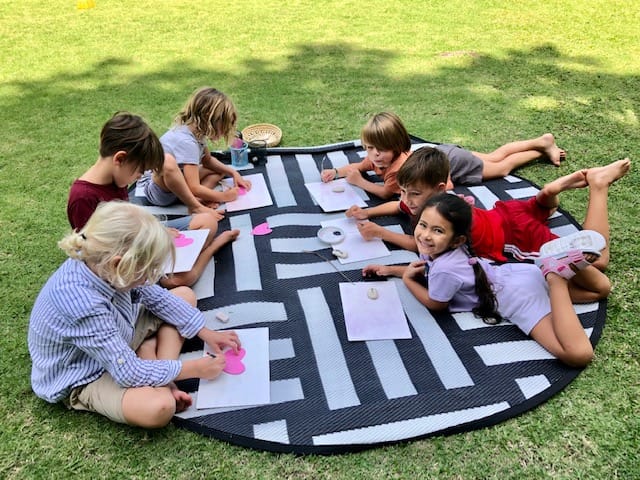
Caterpillar Learning Centre contact details:
For children age 15 months to 8 years old.
Camps, Part-time and Full-time learning.
www.caterpillarschoolbali.com
Instagram @caterpillarschoolbali
contact@caterpillarschoolbali.com
WA: +62 821-3909-5590
